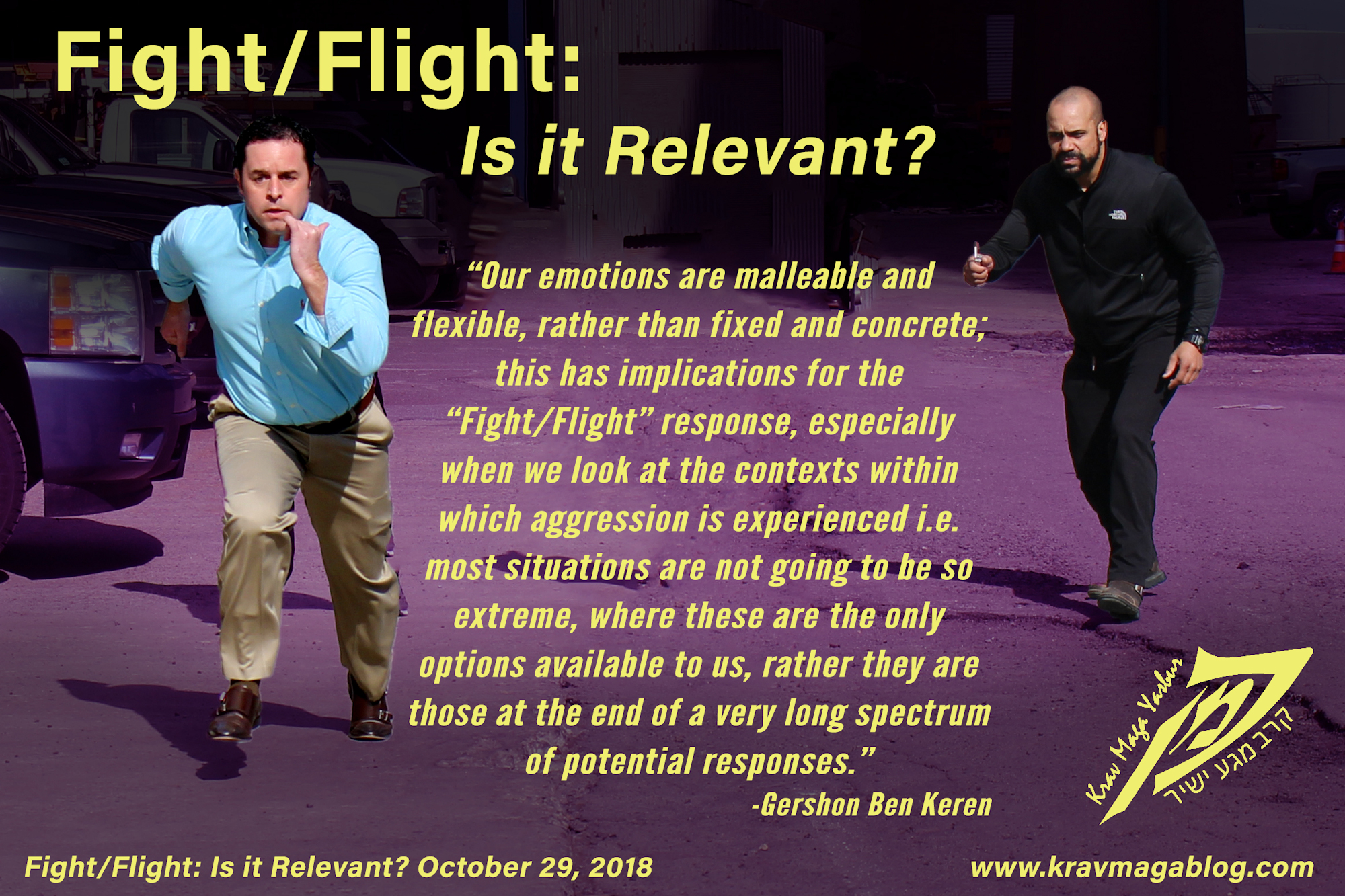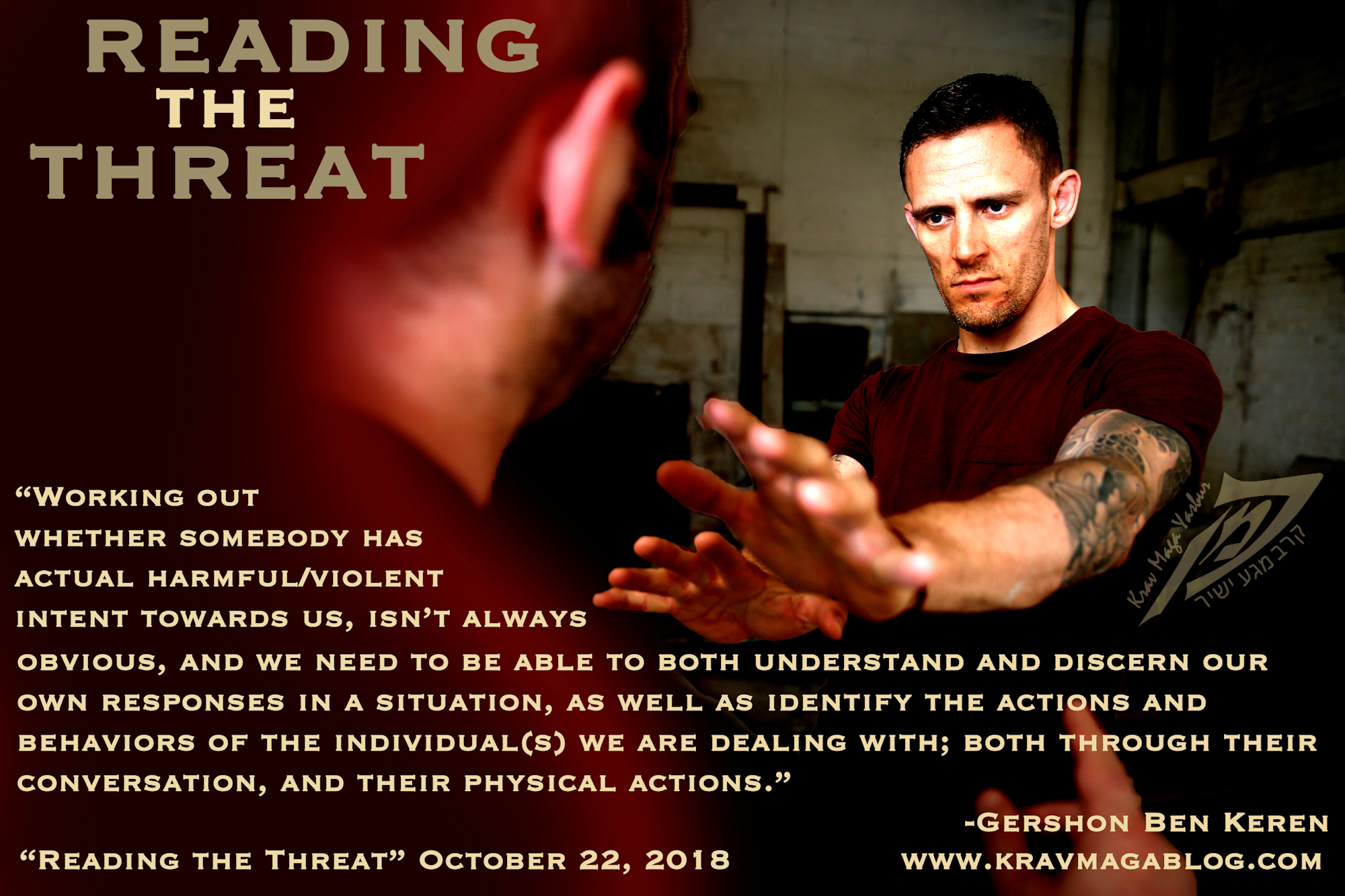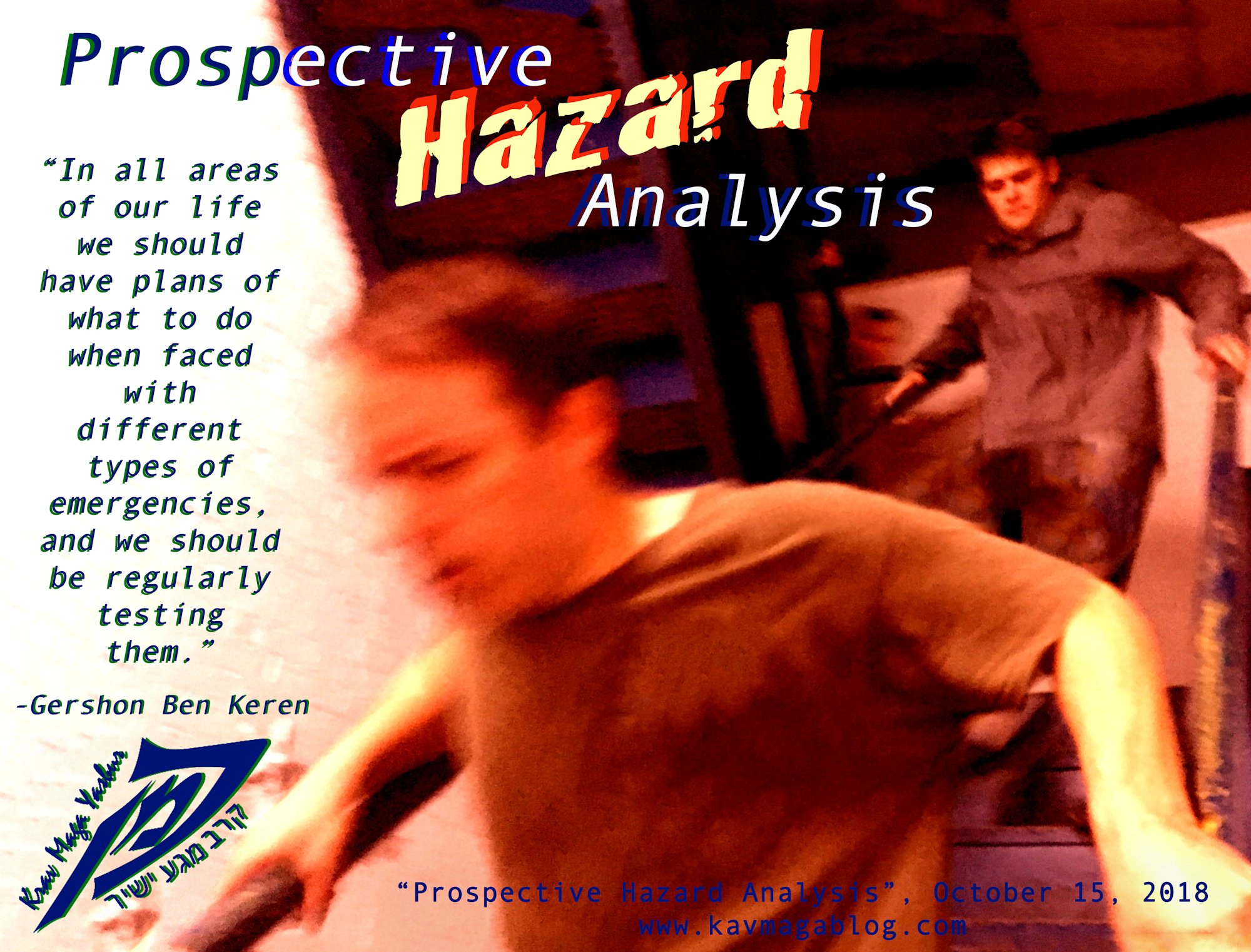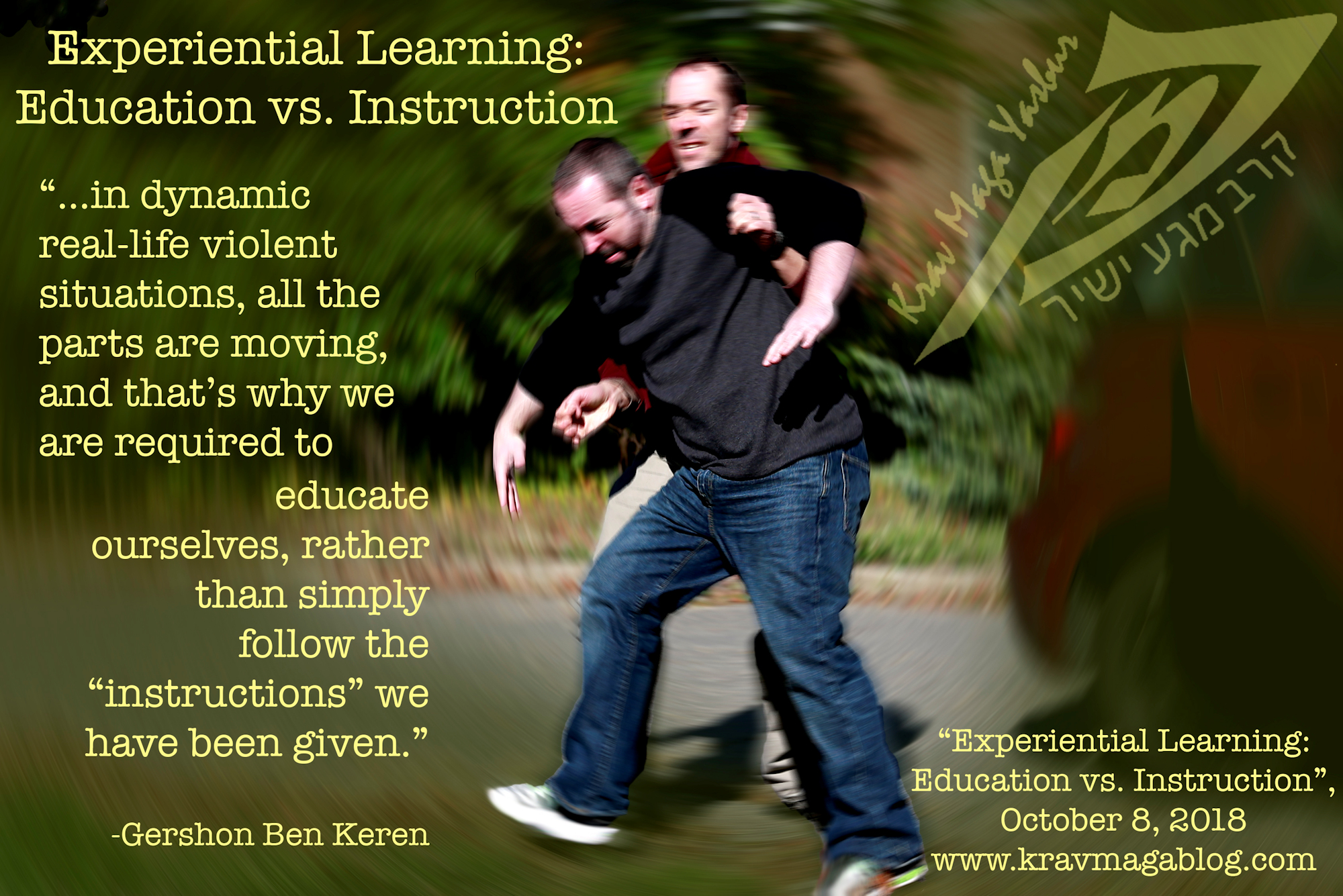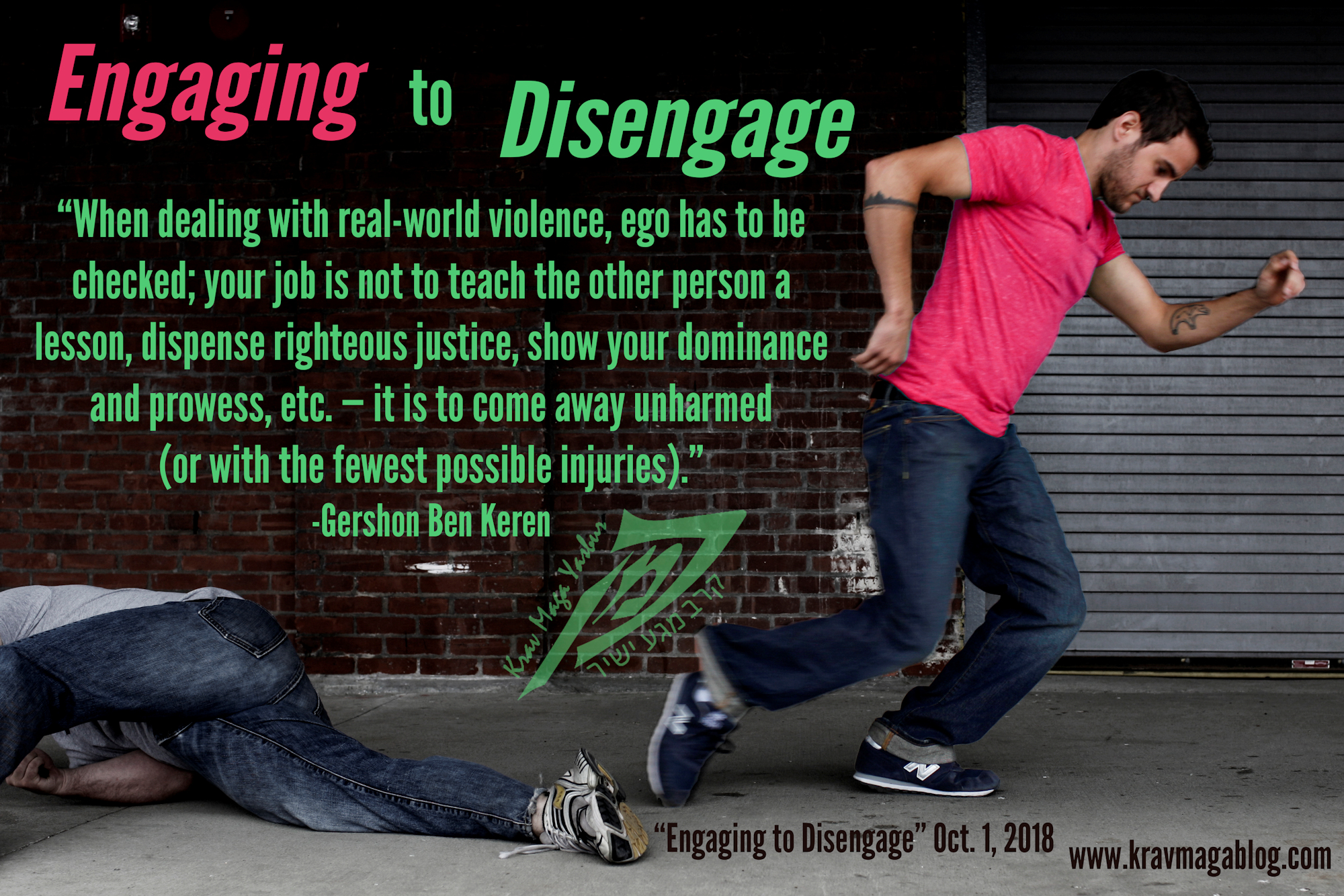The “fight or flight” response is perhaps one of the most quoted pieces of “science”, in self-protection and self-defense circles, however most of the academic/scientific studies, concerning this response – along with freezing – have been conducted in animal populations rather than humans, and have largely involved inter-species conflicts rather than intra-species ones e.g. a big cat, attacking a flock of flamingoes, rather than flamingoes fighting with each other, etc. Whilst, we may share 98% of our DNA, with our next closest species the Bonobos, we are also very distinct from them, both in our social organization, and our communication....
Read MoreDetecting violence in social settings can sometimes see us walking a very thin line: we don’t want to escalate a situation where there may not be any actual harmful intent, and at the same time we don’t want to find ourselves failing to react and respond because we’ve discounted or denied a threat e.g. is somebody simply posturing in order to impress a third-party, but aren’t looking to go beyond this, or are they setting themselves up physically and emotionally to launch an attack/assault, etc? If we act too submissively, or try to deal with them rationally, are they going...
Read MoreI have written a fair bit about risk (defined as the intersection of assets, threats and vulnerabilities) and how to manage/mitigate it, however most of this has been based on an interpretation of past events, where we have past behaviors, and actions – both from our own experiences, and those of others — to guide us in what we should expect in the future, and how we should respond to it. Such a methodology works well where risks are routine, and low-level. For example, we have a wealth of information concerning how burglaries and muggings are committed, and the preventative...
Read MoreTwo of my core beliefs regarding self-defense training, for reality-based fighting, are that techniques don’t really exist, and that if something hasn’t been experienced – even if it is “known” – it won’t be implemented. These two ideas are linked, and have a basis, in David Kolb’s Experiential Learning Theory. A Psychologist, greatly influenced by the work(s) of Jean Piaget, who is best known for his work studying the ways in which children learn, and experience things; he lays out a natural learning process, that can be replicated in the way that we teach and train self-defense. In this article,...
Read MoreFor non-professionals engaged in a conflict, physical engagement has one purpose: to facilitate and create an opportunity to disengage i.e. to get away. This may involve a distracting strike (stun and run) or it could see you rendering the other person unconscious, but the purpose of each of these actions is to create an opportunity to escape. This is something that needs to be practiced when training i.e. after the completion of a technique, disengagement needs to be rehearsed – because we will replicate our training in real-life, and if this doesn’t include us moving away after dealing with an...
Read More

